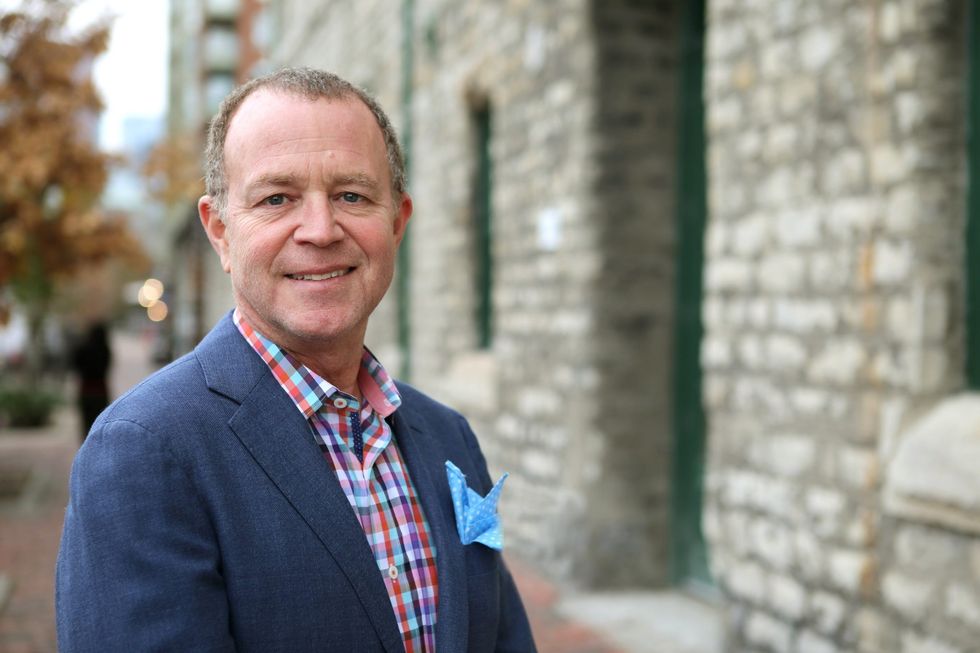
Mark McLean likes to build things.
He was elected to the Toronto Real Estate Board (TREB) six years ago and did two years as a director, eventually becoming president. With that tenure behind him, he is now a director-at-large at the Ontario Real Estate Association (OREA).
“I really wanted to work with Tim Hudak during a time when there was a lot of upheaval in OREA," he says.
“One of the things people will tell you about me is I love building stuff. I loved the challenge of how we could transition an organization that was really geared towards education into an organization that would fight for property rights for Ontarians across the province.”
Now, he's at the forefront of the transition from analog to digital in the real estate industry and he's continuing to build one of the most powerful real estate search platforms and lead generators as the president of Property.ca Realty.
McLean tells Toronto Storeys about life as a boat builder, how technology can help fill some crucial gaps for real estate agents, how a great search platform can arm individuals with enough knowledge to be ready to buy, and why home and condo sellers need to take their emotions out of the process.
How did you first get involved in real estate?
Many years ago, going back 27 years, I owned a boat building company. I sold my boat company to do some travelling and when I came back, I was talking to a friend of mine and he said, ‘Hey, I’m renovating a basement for a friend. You want to help?’ I was just a kid in my twenties, so I said sure and we started renovating this basement. Then we said, ‘You know, we must be suckers. We’re the only guys who aren’t making money in real estate. We should be buying houses.’ We ended up buying a crappy little house in Riverdale and we renovated it and sold it. Then we bought another one and another one and another one. Then the market started to peter out a little bit and, just like everyone else in this business, I love the brick and mortar feel of real estate, so I got my real estate license. That was back in 1989.
As someone who loves building stuff, both with your hands and as an administrator, what are you building or building towards these days?
I was working at a great real estate company for seven years called Bosley and I left Bosley back in March because I got an unbelievable opportunity to run and help grow a company called Property.ca, which is an online brokerage that has a lot of legs. My feeling was that we’re in a business that is very much a business in transition. If you asked people 15 to 20 years ago how they would buy a house, they would call the agent and the agent would start sending them listings and now people really do most of their work ahead of time and call the agent to close it.
I would say the search has gone completely digital and the experience is still analog. I really wanted to be a part of a company that had invested heavily in the search. We’re not a discount brokerage, but we’re a company that spends millions and millions of dollars to make the search, for consumers, really valuable. My job is to help grow that business, help it expand across the country, and agents can achieve that goal of doing well in the analog world, which is a special relationship. But we’re such a technological business that we can use technology to help fill in the gaps where the agent doesn’t excel.
Tell me a little about that. How can technology fill in the gaps for the agent and how far can it go?
Back in the dawn of time when real estate first started, there was a guy who would sit behind a desk and he would pick up the phone and people would call him and say, ‘I want to sell my house. Can you send an agent over?’ For that, the agent would get a 50-50 split with his broker and the broker would do all his advertising and do all the legwork to help the agent succeed. Then we had different models come in over the last 20 years, right from full-service brokerages to the agents doing 100 per cent of the work and paying a transaction fee. But the reality is, with 50,000 agents in Toronto it’s really hard for agents to excel at this business because they’re against so many odds stacked against them. What I feel is that we have an opportunity.
If I was able to rewrite what that would look like, I would want to do what we're doing, which is do the prospecting for agents. Fifty per cent of every dollar that they make goes to finding new customers and we can do that much more effectively as an organization. I have 10 web developers working for me full time. I’ve got writers, researchers, social media people, PR people and all those people are working just to help agents get leads. It’s a very unique experience and on top of that, my office is an 8,000-square-foot penthouse in a loft building in The Distillery District. It’s an incredible environment ... When I post on social media I write #NoDinosaurs because I want people to recognize this is a company unlike any other. If you as an agent come in there thinking you’ll do all the work and get a nice big split, you’re in for a rude awakening. We want people to deal with the leads that we’re providing and not do anything else.
Given all the recent regulations that have come down from government and your experience as a former president of TREB, what is your impression of the Toronto market? Where is it going and are these regulations helping or hindering?
When I was TREB president, I had one thing to communicate to people and that was, ‘When you buy a house, use a realtor.’ Buy a house because you can build a tax-free nest egg, which was such a great idea and that’s a really easy thing to pump out when you believe in it, and I really did. But the reality is, Toronto is a big city approaching alpha city status. We’ve got so many things going for us. If you kind of look at it that way, it's very easy to get the impression that we’re going to go through some dips and some lulls like we’re seeing right now, but overall, we are the alpha city of Canada. We are 10 years behind New York City and if you look at what happened in the last crash, all the big cities seemed to survive pretty well. Paris, London, Hong Kong — all the alpha cities that exist today — we’re one of those. We’re probably one of the smallest, but as far as being an economic engine of Canada, we’re right at the top.
I think we’ll see some blips and the government tries very, very hard to make life affordable and I would say that’s one of the things that stresses me out about the market the most. We live in a great city, but the people who are getting squeezed are the ones who help us support our growth. They are the garbage men, the baristas, the people who work in the stores and the creative class. I think we have to do something about that to help them succeed. I think that rent control will put the breaks on a lot of things, but I believe someone will wake up to it and go back to a different frame of mind. There’s a lot of great streets around this city that could be six-storey streets instead of two-storey streets. You have to support a policy that will help people succeed, help them build units and help them build inexpensive units. Development charges are a hindrance for people who have three-storey houses and want to convert them into multiple units. The development charges are astronomical and there’s no gravy in doing that sort of stuff. What you don’t want to have happen is to develop a city where only the wealthy can live. The people who own houses, that’s what they want, but you need to support people’s ability to rent.
What is your advice for buyers and sellers in the current Toronto market?
I think buyers have to do their research. One of the reasons our company has been so successful is we do most of our lead generation through our marketing arm of condos.ca and that’s the engine that really drives our leads. The reason it does that is if you were to go on any other realtor website in Toronto, you’d get a floor plan, a brief description and photos of the suites themselves. What condos.ca does is really dive into the make of the building: how old is the building? What's the make-up of the building and how has the price per square foot tracked over the last 10 years? How have the maintenance fees tracked? If you’re looking at a million-dollar unit, what other million-dollar units are there in this building? It helps the consumer with the digital search, giving them so much more information, so they come armed, ready to buy. The digital side of it is super important and then on the analog side, they really must find an agent who understands their needs and really has a good handle on building an open and trusting relationship.
For sellers, the market has changed. My only advice to sellers is you have to take the emotion out of it because when you’re selling your home, you think of it as a home and you become very emotionally attached to it. I try to tell sellers to get out of that emotional space. When you are selling your home, you are selling a product as if it is on a shelf. That product will sit there for a very long time if it’s over-priced or if it’s under-priced, you’ll get a lot of people fighting at the store to buy it, so you have to try and figure out that nice little spot in the middle. You have to take emotion out of the equation.





















